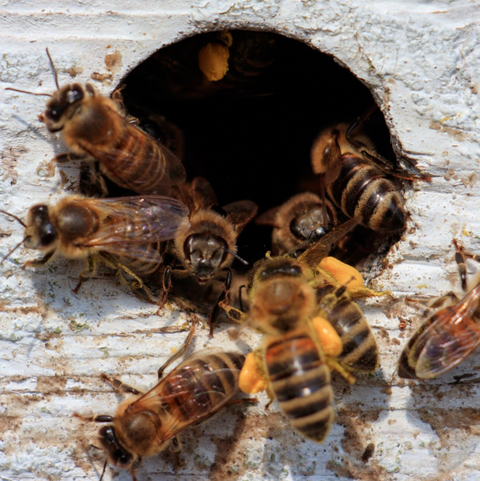
Government honey bee research has uncovered a treasure trove of surprising findings that shed light on the mysterious world of these industrious pollinators. Let's delve into the top 10 revelations that have emerged from these studies, revealing the intricate and fascinating lives of honey bees.
1. The Dance of the Bees
One of the most captivating discoveries is the intricate dance language of honey bees. Researchers have found that these tiny creatures communicate with each other through elaborate dance movements, conveying precise information about the location of food sources.
2. Hive Mind
Government research has revealed the remarkable collective intelligence of honey bee colonies. These insects work together as a superorganism, making decisions as a unified entity for the good of the hive.
3. Royal Treatment
Studies have shown the fascinating hierarchy within a honey bee colony, with a queen bee reigning supreme. The intricate social structure and division of labor among worker bees ensure the smooth functioning of the hive.
4. Pollination Power
Government research has highlighted the crucial role of honey bees in pollination. These tiny creatures play a vital part in the ecosystem, ensuring the reproduction of plants and the production of fruits and seeds.
5. Nectar Navigators
Scientists have discovered the incredible navigational abilities of honey bees, capable of finding their way back to the hive from miles away. Their keen sense of direction and memory skills are truly awe-inspiring.
6. Super Pollinators
Research has shown that honey bees are not only efficient pollinators but also incredibly hardworking. A single bee can visit thousands of flowers in a day, spreading pollen and ensuring the continuation of plant species.
7. Climate Resilience
Government studies have revealed the adaptability of honey bees to changing climates. These resilient insects have mechanisms in place to cope with environmental challenges, ensuring their survival in a rapidly changing world.
8. Hive Health
Researchers have uncovered the importance of hive health in the overall well-being of honey bee colonies. Factors such as disease, pesticides, and habitat loss can have a significant impact on bee populations, highlighting the need for conservation efforts.
9. Honey Harvest
Government research has provided insights into the process of honey production within a hive. The intricate dance of the bees, the collection of nectar, and the transformation into golden honey are all part of a fascinating and complex system.
10. Bee Guardians
One of the most heartwarming findings is the dedication of beekeepers and researchers to the protection and conservation of honey bees. Their tireless efforts ensure the survival of these vital pollinators and the preservation of our natural world.





Comments (0)
There are no comments for this article. Be the first one to leave a message!